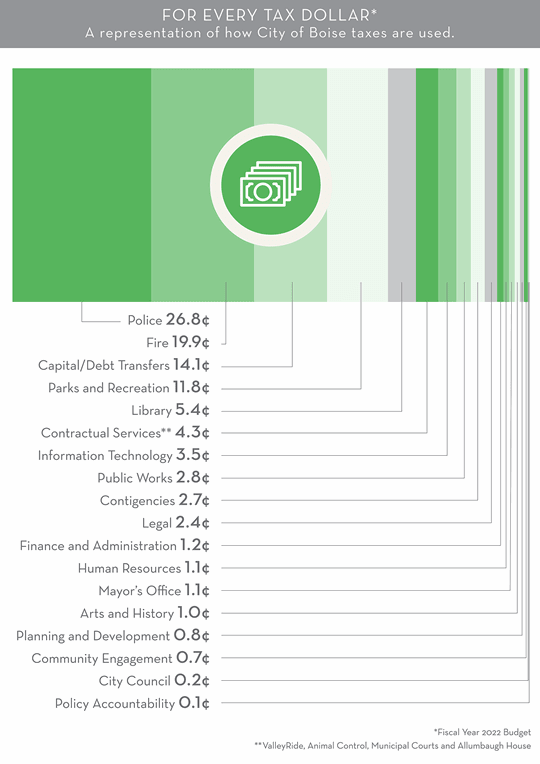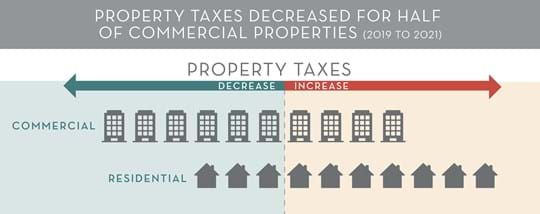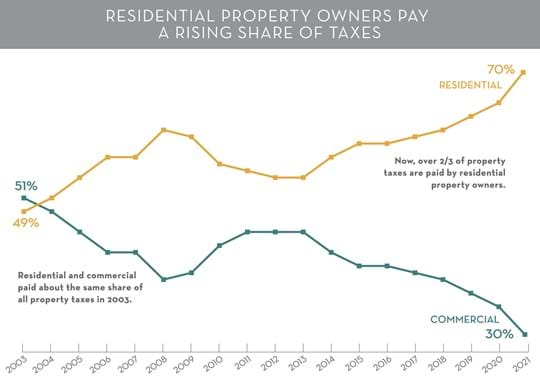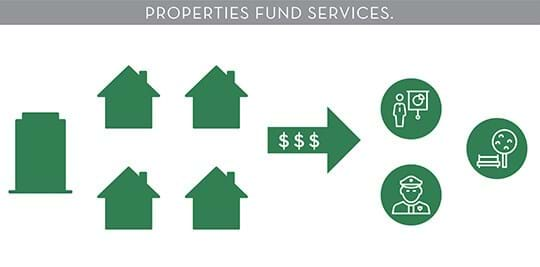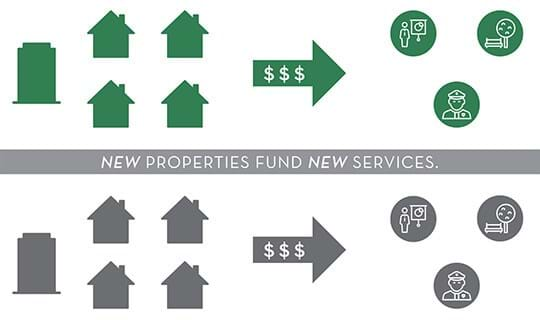The City of Boise takes our role as stewards of taxpayer resources very seriously. We know that property taxes are having a real impact on everyone and we're working to do our part to help ease the burden.
Let's Talk Property Taxes
Increased property taxes are having a real impact on Idahoans. For lower-income or fixed-income residents, this could mean losing their home or not being able to afford housing in their own city. Unfortunately, it feels like you need an accounting degree to understand how property taxes work. We’d like to help. Learn more about property taxes from the options below.
Are we using too much jargon? Check out our glossary.
Still have questions? Email us at budget@cityofboise.org. Our knowledgeable team is always happy to assist you.
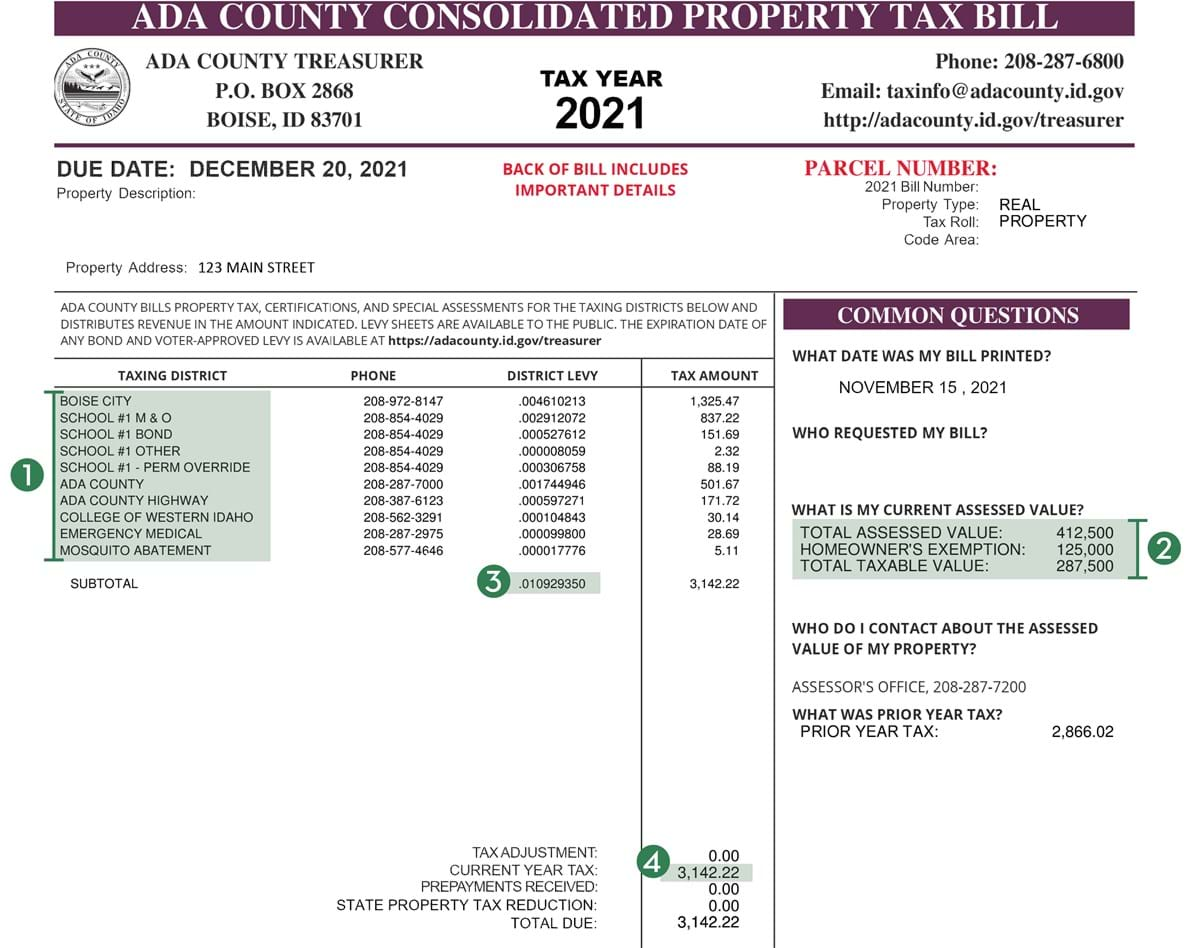
 Taxing Districts
Taxing Districts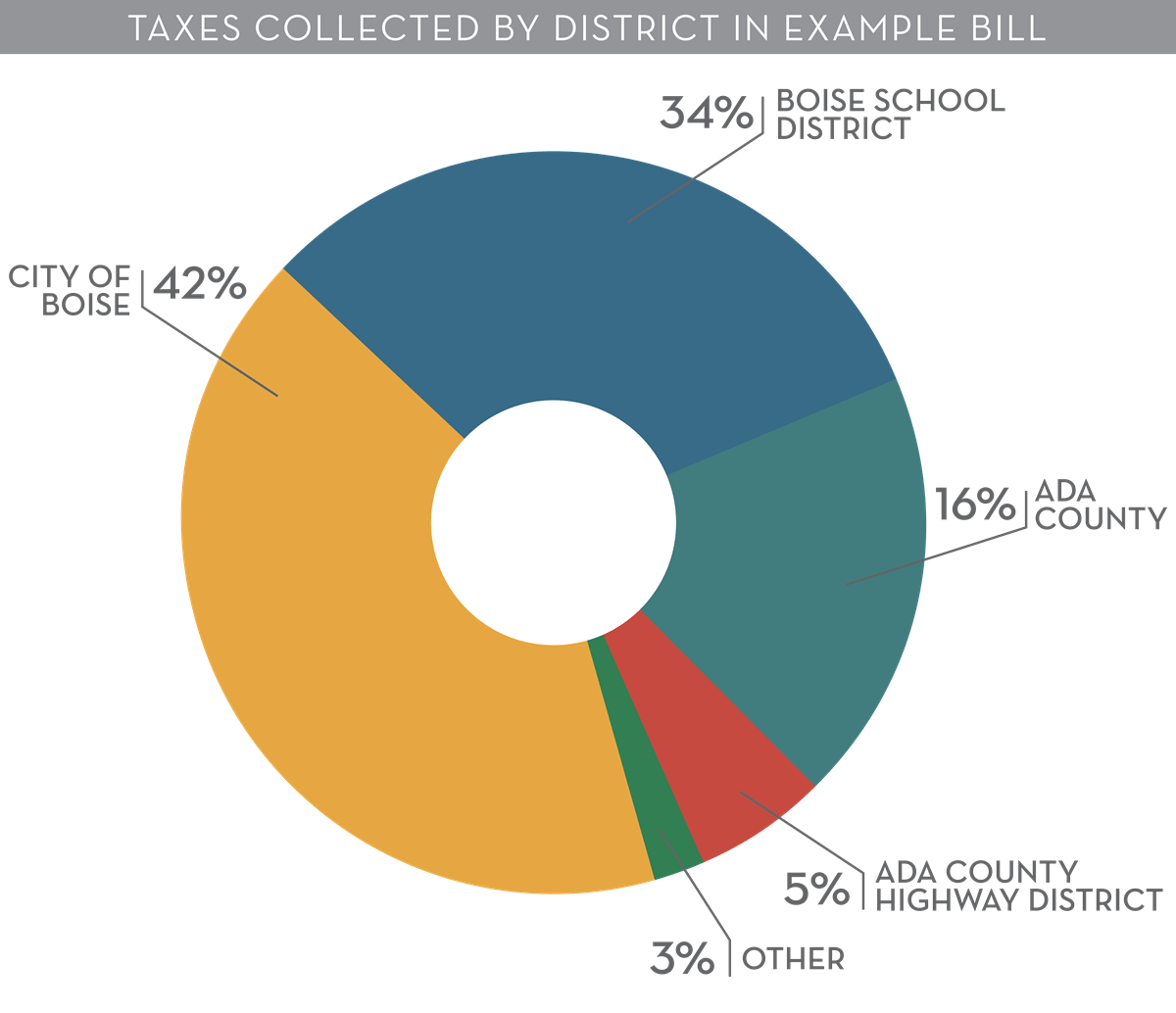
 Taxable Value
Taxable Value

 Levy Rate
Levy Rate
 What You Owe
What You Owe
